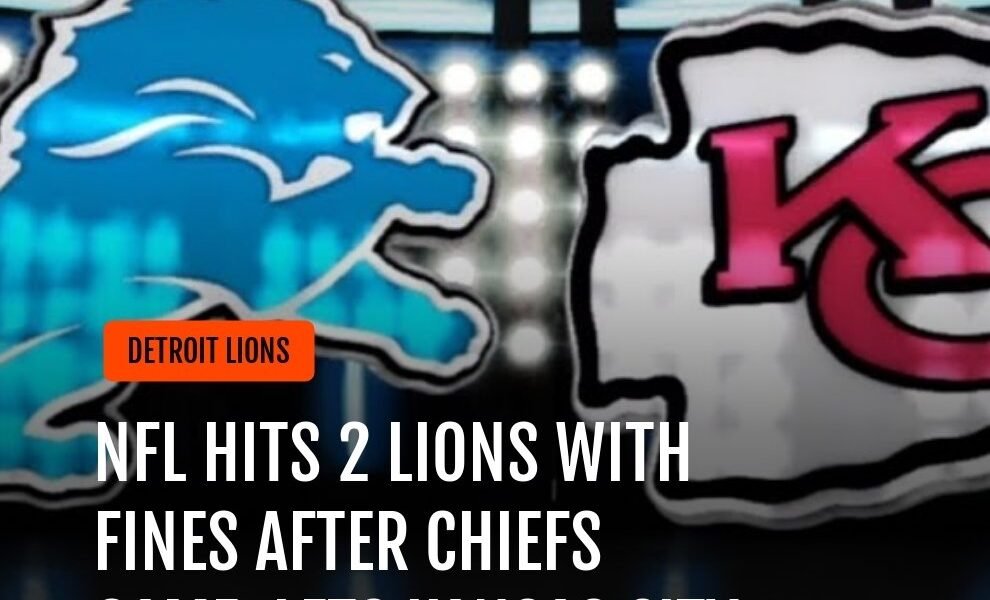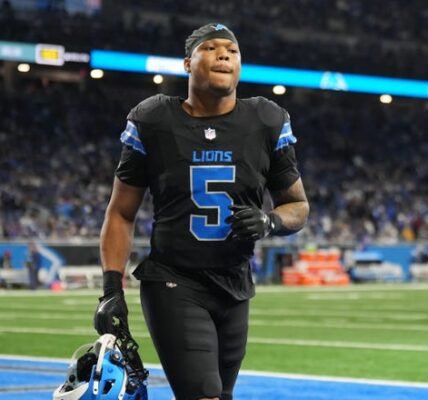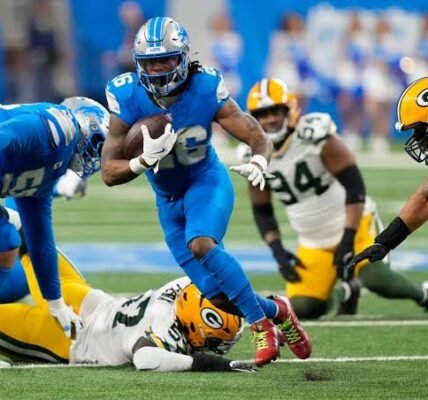The aftermath of the Detroit Lions’ 30-17 defeat to the Kansas City Chiefs continues to stir controversy, as the league’s latest disciplinary moves once again raise serious questions among fans.
According to the NFL’s official Week 6 fine report, linebacker Alex Anzalone was docked $12,172 and defensive tackle Tyler Lacy $5,722 for violations classified as “striking/kicking/tripping/kneeing” during the heated matchup.
At first glance, that might not seem unusual—until you notice that no Kansas City players were fined for their involvement in the same contest.
Chiefs Escape Unscathed, Lions Fans Outraged
This decision only intensifies frustration among Detroit supporters, who are already upset about Brian Branch’s one-game suspension and the controversial Jared Goff touchdown reversal that erased a score earlier this season.
The optics are ugly. The Lions, a franchise that has long struggled to earn respect across the NFL, once again see their players punished while the reigning Super Bowl champions walk away without consequences.
It’s a familiar story for Detroit fans: the Lions get fined, while their opponents in the same scenarios go unpenalized.
A Growing Pattern of Concern
From the NFL Films “hit job” targeting Branch, to questionable officiating during the Chiefs game, and now this imbalance in fines, it’s becoming harder to believe the Lions are being treated on equal footing.
Dan Campbell’s squad takes pride in playing with toughness and heart, but when that physicality keeps being flagged while others’ similar actions are ignored, it sends a troubling signal.
This situation isn’t just about financial penalties—it’s about fairness, integrity, and consistent enforcement of league rules.
The Lions are no strangers to challenges, but the league’s recent approach feels more punitive than impartial. Two Lions fined, zero Chiefs disciplined, and once again Detroit is left feeling targeted.
Until the NFL begins applying punishment evenly across all teams, accusations of bias will continue to spread. And in Detroit, that sentiment isn’t just suspicion anymore—it’s quickly turning into conviction.




